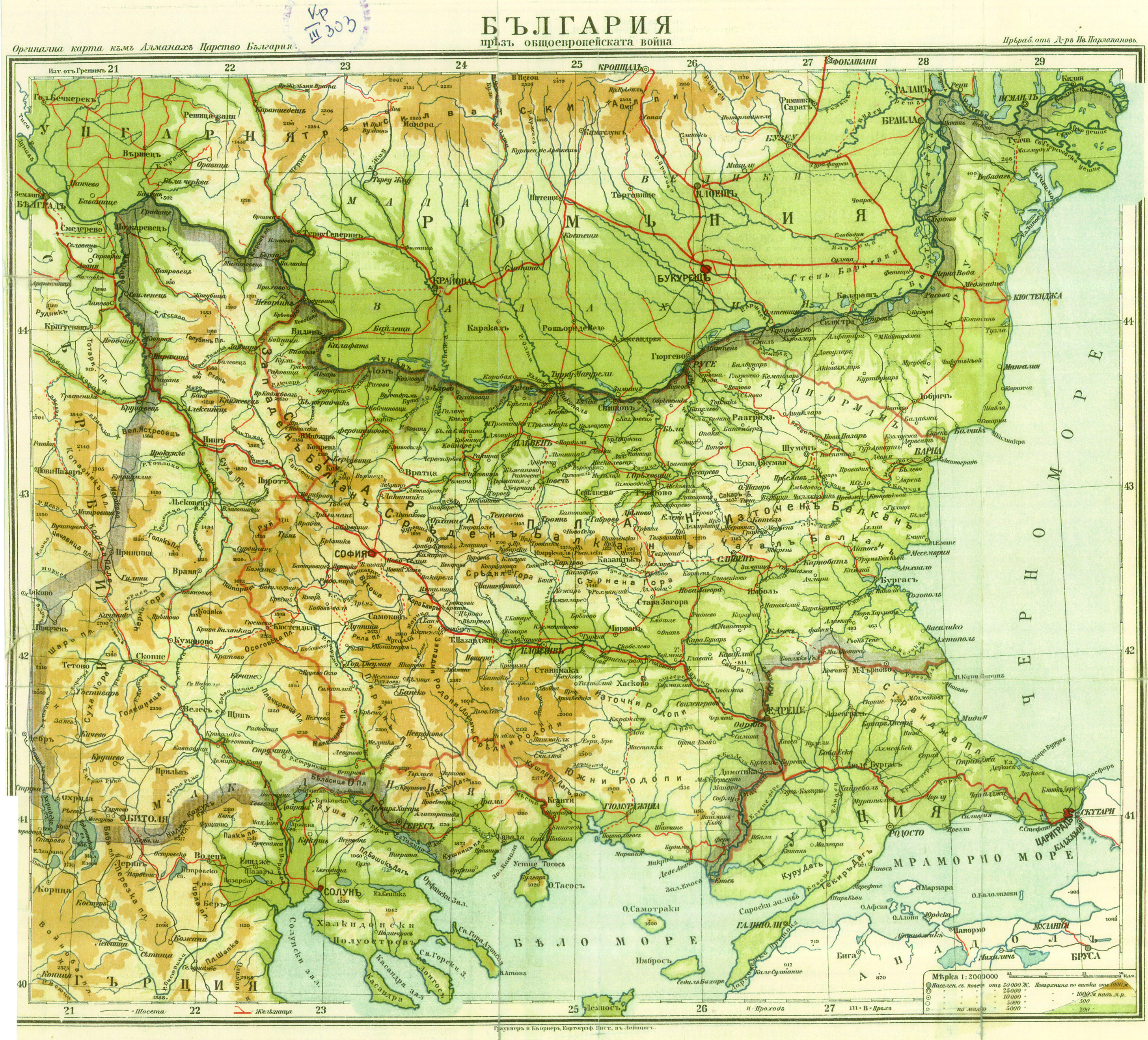
Bulgaria during World War I
The Kingdom of Bulgaria participated in World War I on the side of the Central Powers from 14 October 1915, when the country declared war on Serbia, until 30 September 1918, when the Armistice of Salonica came into effect.
After the Balkan wars of 1912 and 1913, Bulgaria was diplomatically isolated, surrounded by hostile neighbors and deprived of Great Power support. Negative sentiment grew particularly in France and Russia, whose officials blamed Bulgaria for the dissolution of the Balkan League, an alliance of Balkan states directed against the Ottoman Empire. Bulgarian defeat in the Second Balkan War in 1913 turned revanchism into a foreign policy focus.
When the First World War started in July 1914, Bulgaria, still recovering from the economic and demographic damage of the Balkan Wars, declared neutrality.[1] Strategic location and a strong military establishment made the country a desired ally for both warring coalitions, but its regional territorial aspirations were difficult to satisfy because they included claims against four Balkan countries. As the war progressed, the Central Powers of Austria-Hungary and the German Empire were in a better position to meet these demands. Bulgaria entered the war on the side of the Central Powers, invading Serbia in October 1915.
Although the smallest of the Central Powers, Bulgaria made vital contributions to their common war effort. Its entry heralded the defeat of Serbia, thwarted the goals of Romania,[2] and catalyzed the Ottoman war effort by providing a land and rail link from Germany to Istanbul, that is, on Via Militaris.[3]
Though the Balkan theatre saw successful campaigns of rapid movement by the Central Powers in 1915 and 1916, the conflict degraded into attritional trench warfare on both the Northern and the Southern Bulgarian Fronts after most Bulgarian goals were satisfied.[4] This period of the war further damaged the economy, creating supply problems and reducing the health and morale of Bulgarian troops. Despite achieving national territorial aspirations, Bulgaria was unable to exit what otherwise would have been a successful war, weakening its will to continue to fight. These stresses intensified with time, and in September 1918, the multinational Allied armies based in Greece broke through on the Macedonian Front during the Vardar Offensive. Part of the Bulgarian Army quickly collapsed, and open mutiny followed as rebellious troops proclaimed a republic at Radomir.[1] Forced to seek peace, Bulgaria requested an armistice with the Allies on 24 September 1918, accepting it five days later. For the second time in only five years, Bulgaria faced national catastrophe. Tsar Ferdinand I assumed responsibility, abdicating in favor of his son Boris III on 3 October.[5]
The 1919 Treaty of Neuilly formally concluded Bulgaria's participation in World War I. Stipulations included the return of all occupied territories, the cession of additional territories and the payment of heavy war reparations.
The Bulgarian Army[edit]
Organization and state of the army[edit]
The demobilization of the Bulgarian Army following the formal end of the Second Balkan War took place under the difficult conditions created by the Ottoman military threat hanging over Southern Bulgaria and the Romanian occupation of Northern Bulgaria. Many of the divisions had to be brought down to their usual peace strength and re-deployed to cover the Ottoman border. It was only after the signing of the Treaty of Constantinople that the army was able to complete the process of its demobilization and assume its peacetime organization. The old nine regular infantry divisions were returned to their garrison areas; the 10th Aegean Division, that had been formed in the First Balkan War, was settled in the newly acquired territories in the Rhodope Mountains and Western Thrace; the 11th Infantry Division was reduced to minimal size and reformed into a cadre division used for the training of new recruits.[73] On 8 December the demobilization was completed and the peacetime army now comprised 66,887 men, out of whom 36,976 were in the interior of Bulgaria and 27,813 in the new territories.[73]
In literature[edit]
The story ¨Kradetzat na praskovi¨ (English: "The Peach Thief") depicts the love story between a Bulgarian colonel's wife and a Serbian prisoner of war. The First World War is so far best presented in that story by the late Emiliyan Stanev, one of the greatest Bulgarian writers.



